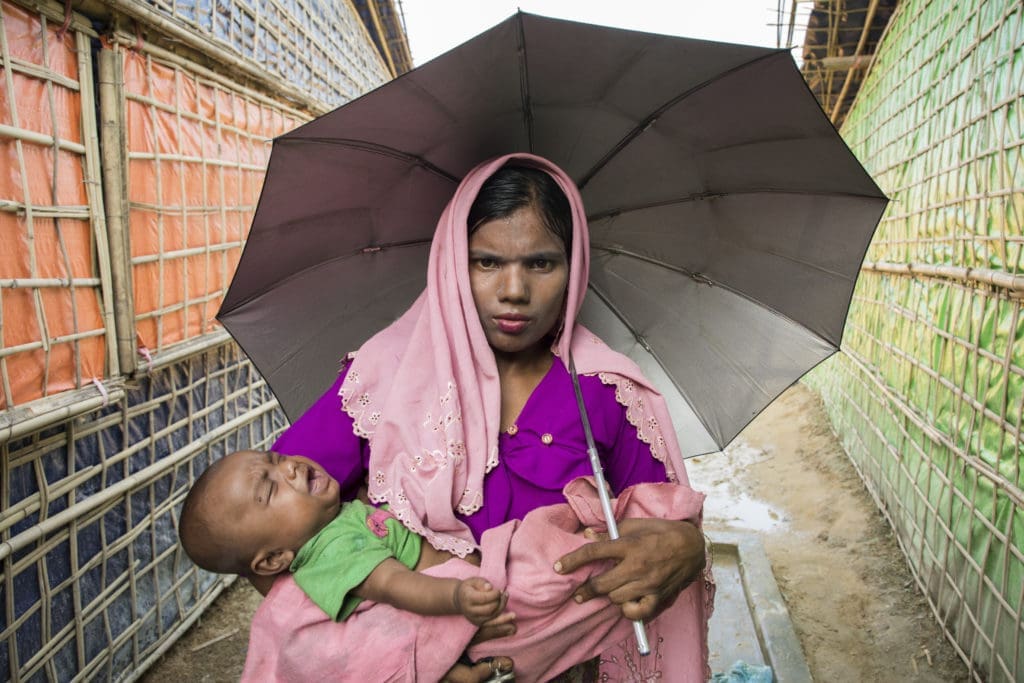
Breastfeeding in Emergencies: The Struggles of New Mothers in the World’s Largest Refugee Camp
In August 2017, persecution and violence in Myanmar forced thousands of Rohingya people to flee for their lives. They sought safety in Cox’s Bazar, a seaside town in Bangladesh that, in a matter of months, became home to the largest refugee camp in the world.
A few years later, nearly 1 million Rohingya still live in Cox’s Bazar. The situation in its refugee camps is unique for several reasons: they are home to a disproportionately high number of women and children, and sadly, disproportionately high rates of malnutrition.
While malnutrition hurts everyone, it’s especially devastating to pregnant mothers and young children. Not receiving the right nutrients in the first 1,000 days of life – the period between conception and age 2 – can have lasting consequences on child’s development. And for mothers, severe malnutrition can leave them unable to produce enough breastmilk to properly nourish their young infants.
The United Nations World Food Programme (WFP) is doing everything it can to reach women and children in Cox’s Bazar with the nutrition they need. For World Breastfeeding Week, listen in to this episode of Hacking Hunger to hear Tracy Dube, a U.N. World Food Programme nutritionist in Cox’s Bazar with years of experience helping mothers in emergency situations, give a firsthand look into what it takes to fight malnourishment in this crisis.
A Vicious Cycle
“Even before the influx of refugees, Cox’s Bazar was a very vulnerable district with rates of malnutrition higher than the national average,” Tracy told us from her office in Bangladesh. “You can imagine then, the difficulties that accompanied a sudden influx of nearly 1 million people.”
With thousands of makeshift shelters springing up seemingly overnight, resources were stretched thin. Refugees lacked access to clean water, health services and adequate sanitation. This only exasperated an already growing threat of malnutrition.

Women and children refugees in Cox’s Bazar.
“Malnutrition is a viscous cycle,” Tracy explained. “If a mother is malnourished, they’ll give birth to a small baby who is likely to become malnourished in their lifetime. We therefore knew we needed to act quickly to support mothers in Cox’s Bazar and save lives.”
The U.N. World Food Programme soon began running a number of programs specifically designed to help young mothers and children. These included giving specialized, fortified rations to mothers of children under five, and providing nutrition education and counseling to mothers on hygiene and feeding their children. The U.N. World Food Programme also sends nutritionists into communities to actively seek out pregnant and lactating mothers open to receiving help.
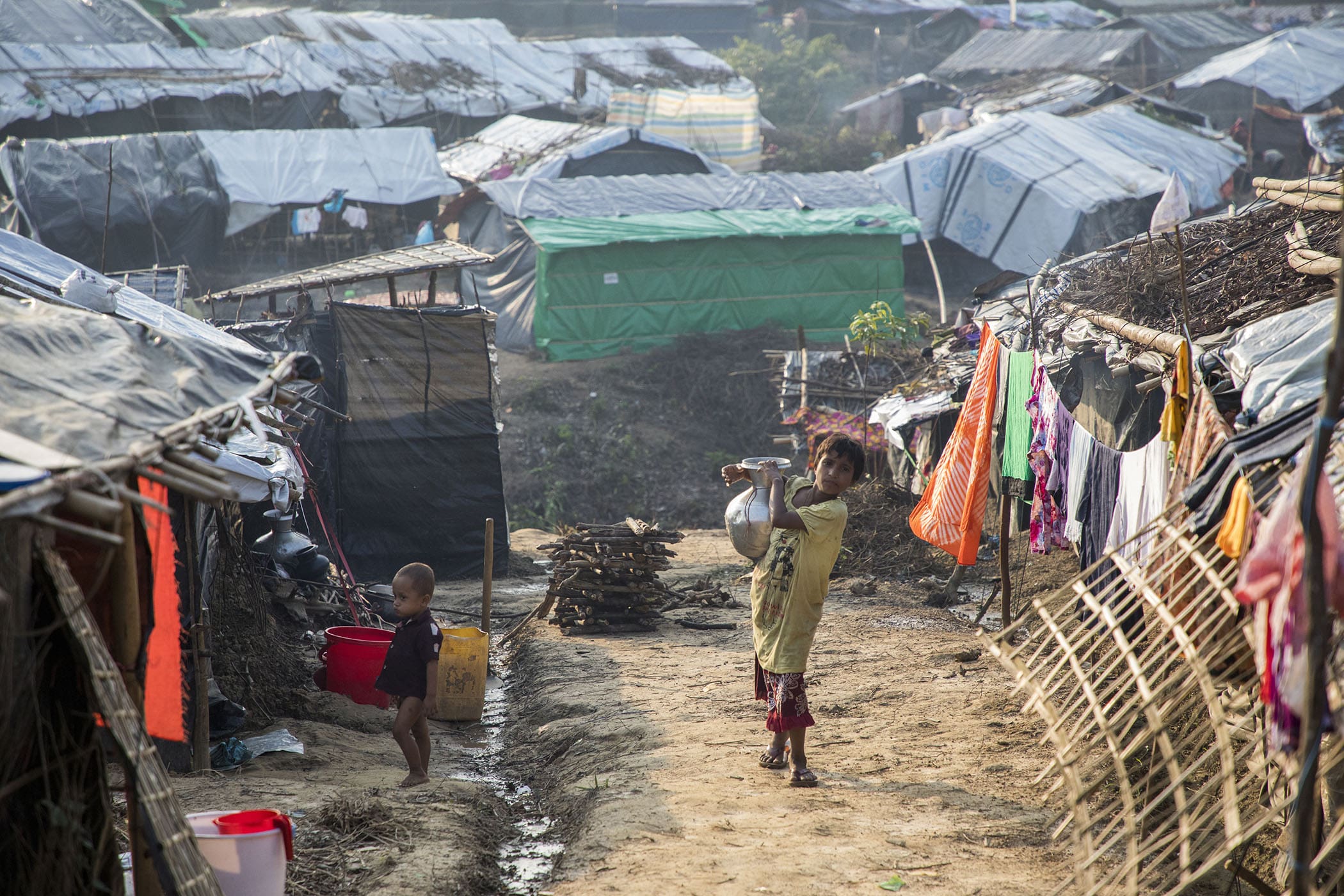
A child walking through the makeshift shelters in Cox’s Bazar.
A Key Solution
In Cox’s Bazar, U.N. World Food Programme nutritionists place a special emphasis on educating young mothers on breastfeeding, a practice that is important anywhere, but particularly critical in areas that face severe health and economic hardships.
“Breastfeeding here is very important,” said Tracy. “We are talking about a situation where formula is limited, so, what that means is most mothers have no access to it or safe cow’s milk. But breast milk is a convenient, hygienic, cheap and a readily available food source for infants. It comes with the complete nutrients that infants need, and it’s the first immunization the child receives considering health services here aren’t optimal.”
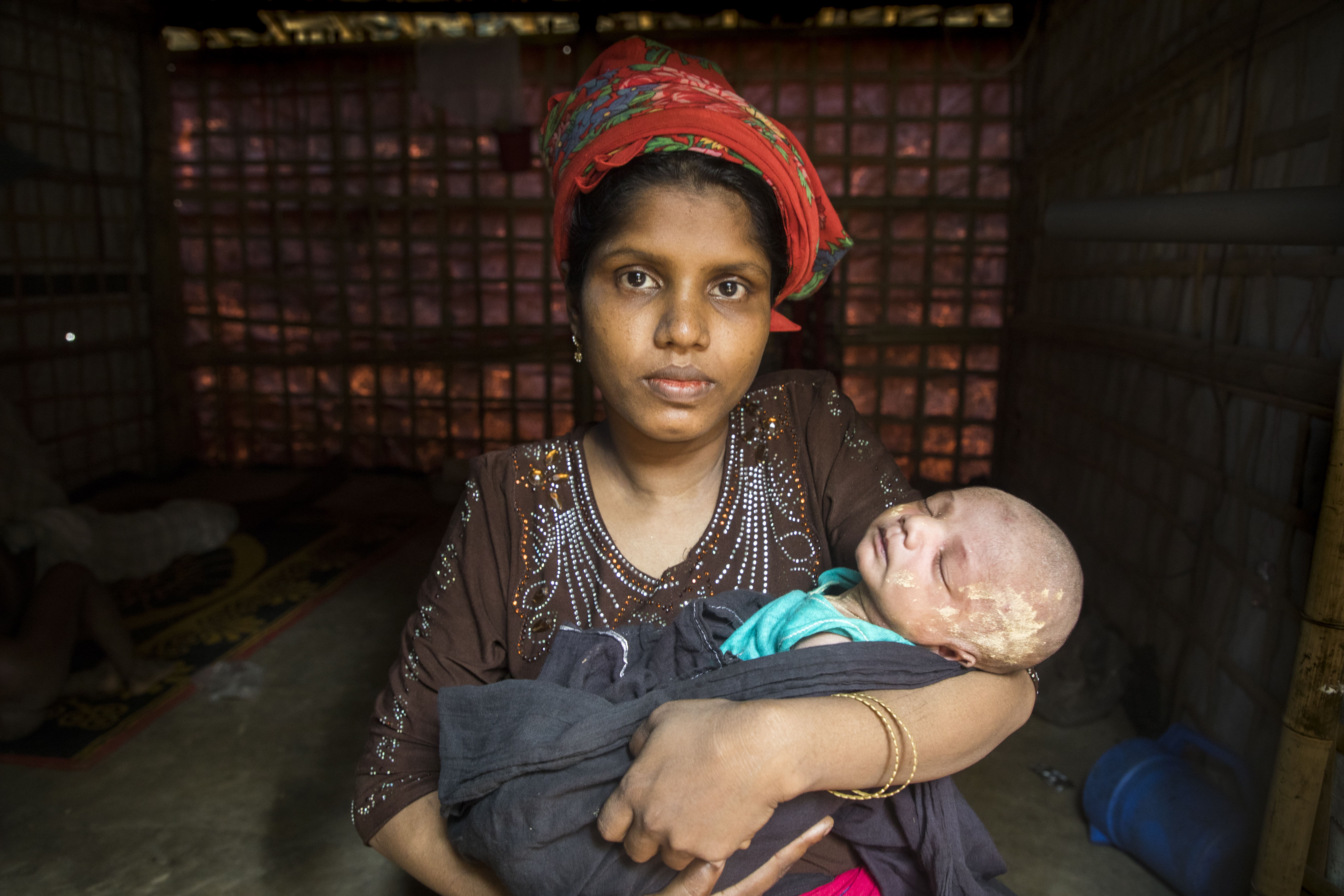
A Rohingya mother and her infant.
Despite the importance of breastfeeding in Cox’s Bazar, Tracy finds that misinformation around the practice flows freely and there are challenges to providing education. Women in this community are often forbidden to work, and breastfeeding is seen as a women’s issue that men cannot discuss. Therefore, finding women who speak the Rohingya language to counsel lactating women is difficult.
Overcoming the Challenges
To overcome the challenges around breastfeeding in Cox’s Bazar, the U.N. World Food Programme implements a variety of strategic practices.
“Firstly, we’re targeting not only women, but gatekeepers of change in the community,” Tracy said. “This includes educating men and grandmothers on how to support women.”
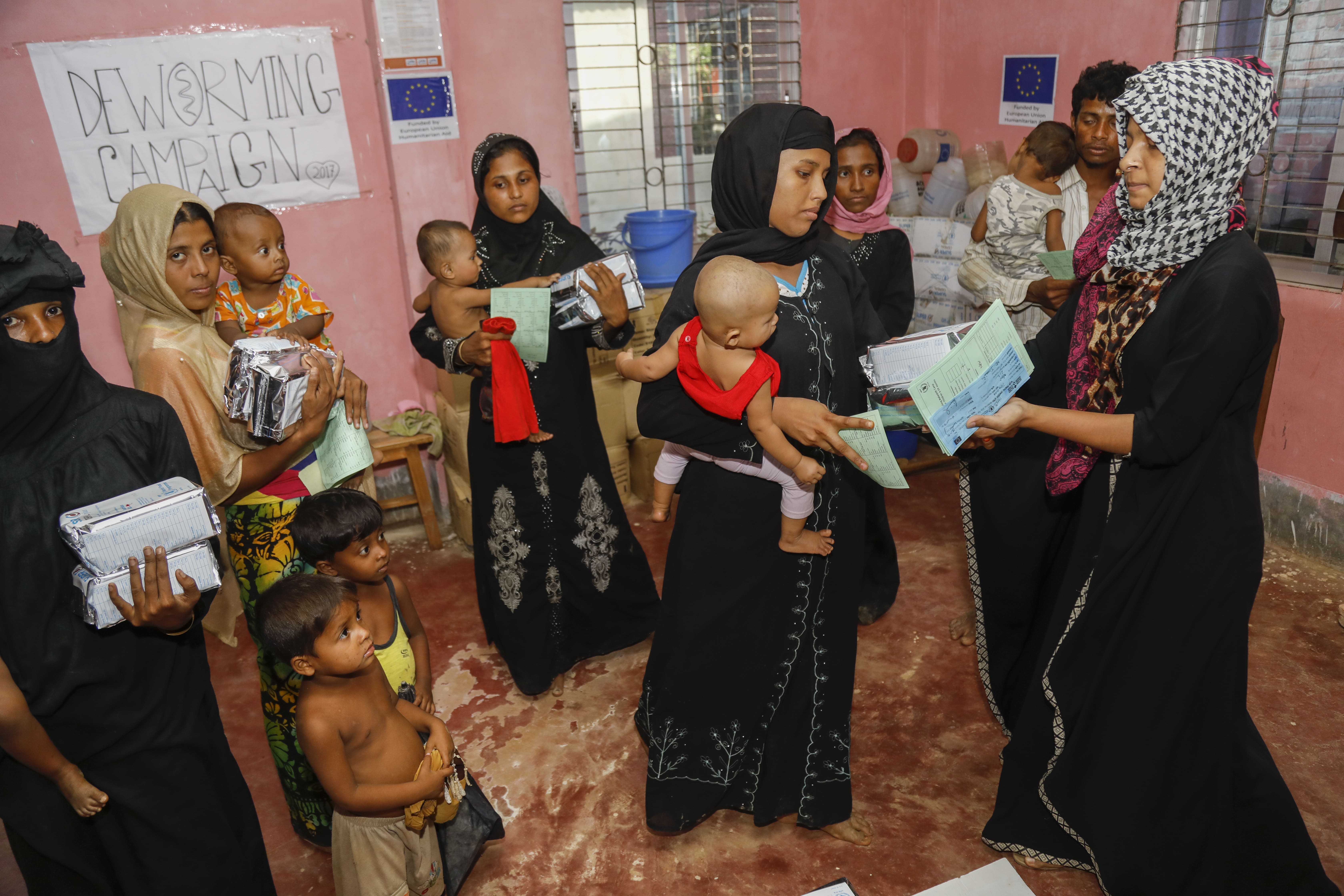
Mothers and their children at a WFP Nutrition Center in Cox’s Bazar.
“Secondly, WFP is providing the environment necessary for women to be able to breastfeed. At all our food distribution outlets, we’ve built what we call breastfeeding corners, where mothers can go to breastfeed their children at the same time they are waiting for food. We provide that same environment in our nutrition centers, too, so that mothers have the access they need.”
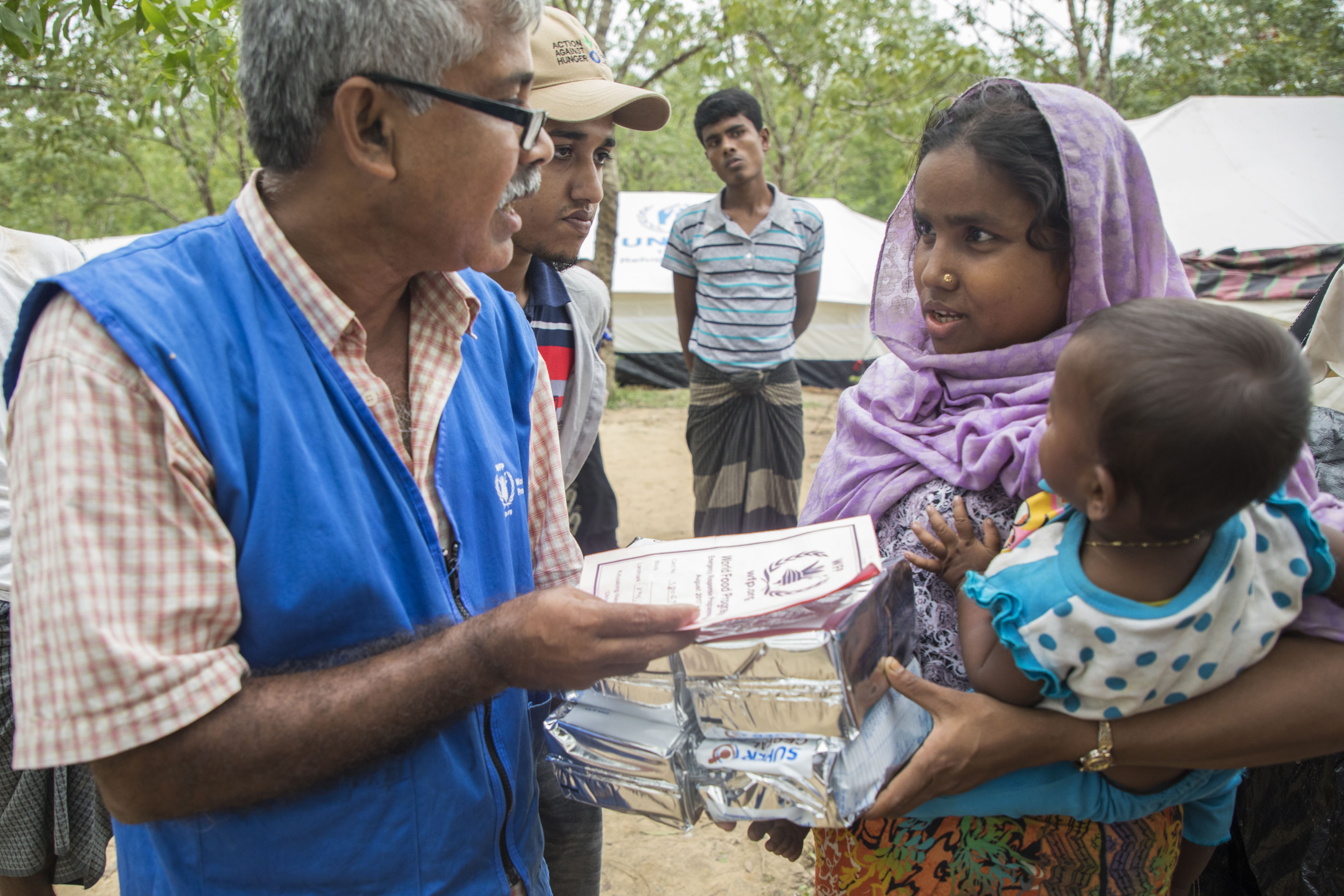
A WFP program associate speaks to a mother and her child in Cox’s Bazar.
“And we are also reaching out to mothers in their communities,” Tracy continued. “We’re talking to them, trying to understand what difficulties they face at home and how we can better support them. You know, there is no one blanket approach so we need to be thinking about all the avenues we can use to reach out to women.”
Rewarding Results
Even with the challenges that accompany working in emergency situations like Cox’s Bazar, Tracy says the experience is extremely rewarding, because she knows she’s changing lives.
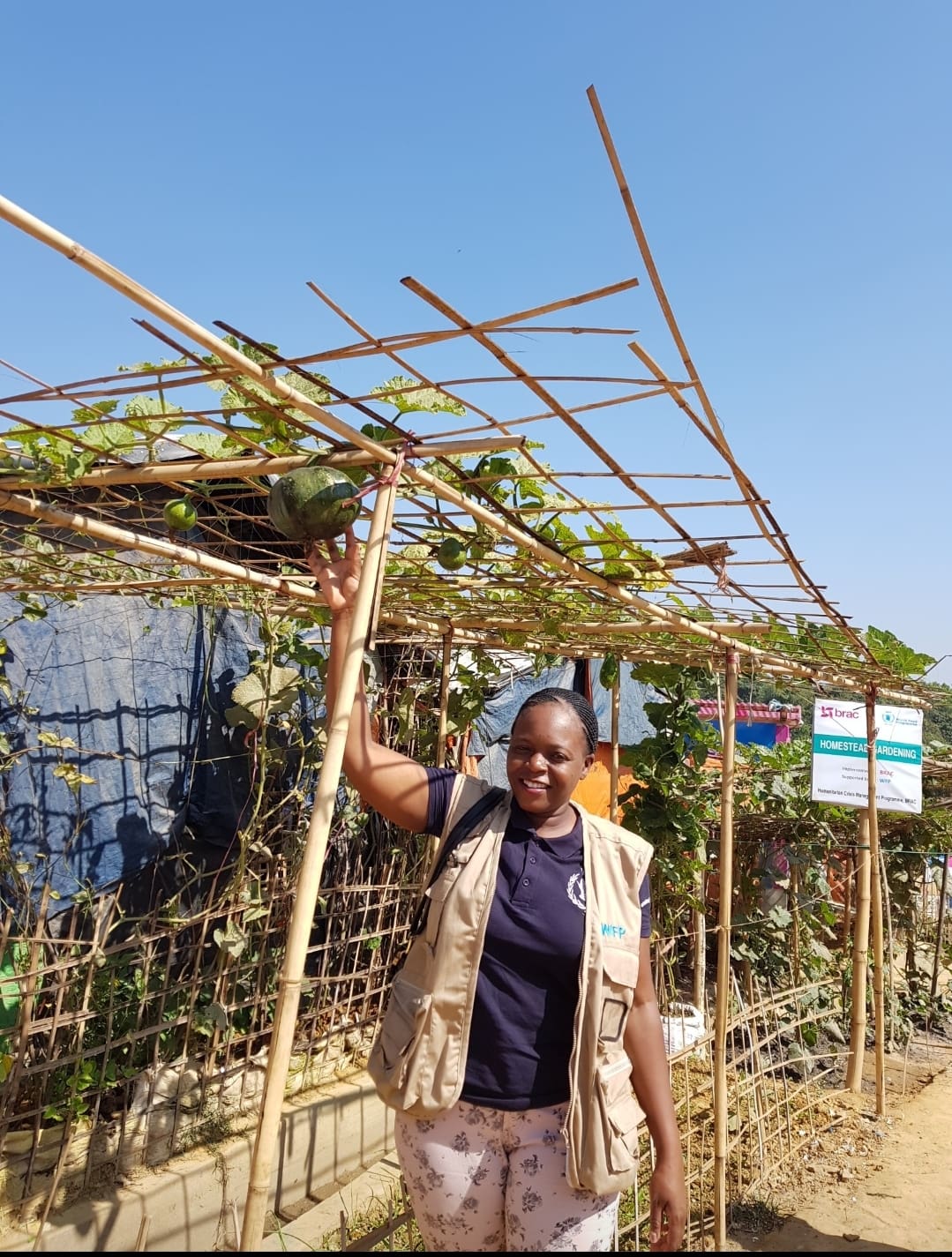
Tracy Dube in Cox’s Bazar.
“It is very hard. Sometimes it can be overwhelming,” Tracy said. “But one of the joys of working in emergency situations is that you get to see the results instantly – unlike when you’re working in the development sector where it takes years. You see the impact immediately here, and that’s so rewarding.”
“So, that is one of the things that inspires me to keep going,” Tracy continued. “I know I’m making a difference. I know I’m working for WFP and WFP is feeding 1 million people every month and helping mothers and children. And that is very rewarding to me, for I know all my efforts are not going in vain.”




